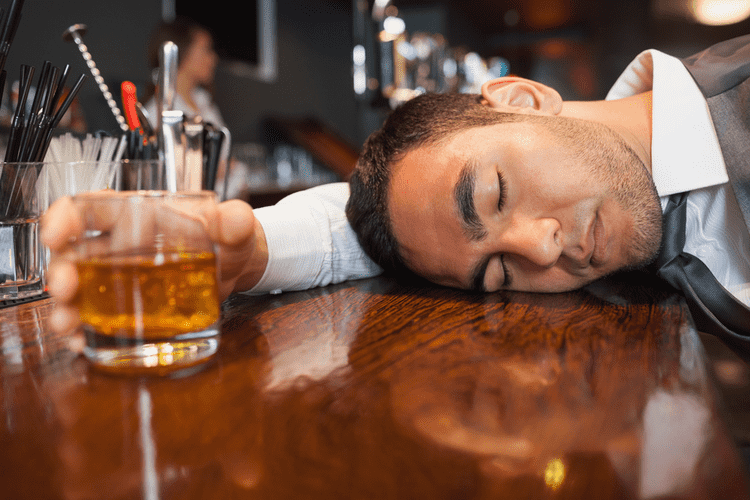Nevertheless, many treatment programs, including Alcoholics Anonymous, require a commitment to complete abstinence as a condition of admission. Only 1.0 percent of people receive substance abuse treatment as an inpatient or outpatient at a specialty facility. The single most popular path is the use of peer support groups in the community. PubMed and PsycINFO were used to identify prior reviews of the continuing care research literature as well as articles published after 2014 that were not included in these reviews.

Healthy food can give a person more energy and help them feel motivated. Anyone wanting to get sober and stay sober needs to have the drive to do it and have a long-term addiction recovery plan. However, there is always a risk of relapse as substance use disorder is a chronic disease.
Welcome to my blog, a journey of self discovery in nearly 30 years of sobriety.
It’s hard to leave addiction behind without constructing a desirable future. Many find in 12-step programs—Alcoholics Anonymous (AA) and Narcotic Anonymous (NA) are among the best known—a caring, supportive community willing to pull each other 14 Reasons Being Sober Makes Your Life Better through the temptations, the self-rebuke, and the hopelessness that especially mark the early stages of recovery. They also value having role models of recovery and someone to call on when the recovering self is an unsteady newborn.
Recovery can be the basis for these changes because it’s all about finding yourself, learning a new way of life, and being the best version of yourself you can be. Not only should recovery be at the top of your list every day, recovery is a choice you must make. Recovery is https://trading-market.org/12-sample-farewell-letters-format-examples-and-how/ a continuous choice that you must make every day, even on the hard days when you are tested. Unfortunately, addiction is not something that is just cured after treatment. It’s up to you to use your new coping skills and your recovery program to stay strong in your sobriety.
Question About Treatment
CBT is offered in most residential treatment programs and is effective for aiding in the recovery from substance use disorders. Achieving long-term recovery from addiction is a challenging but rewarding endeavour. Understanding relapse, recognising its stages, and developing relapse prevention skills are essential to a successful recovery journey. By identifying triggers, building a support network, practising mindfulness meditation, creating an emergency contact list, learning coping skills, avoiding high-risk situations, and staying committed, individuals can greatly reduce the risk of relapse and maintain their sobriety over the long term. Remember that recovery is a personal journey, and there is no one-size-fits-all approach.
- The evidence shows that every day, people choose to recover from addiction on their own.
- In contrast, recovery coaches will support a variety of recovery options and support services, of which AA may be one of many.
- Adolescents and young adults between the ages of 15 and 25 are one such group, with the lowest rates of engagement for medication for their opioid use problems.
- If PAWS is severe or if you’re experiencing prolonged symptoms, a medical professional can help you work through them and remain in recovery without relapse.
In fact, people in recovery might be better off if the term “relapse” were abandoned altogether and “recurrence” substituted, because it is more consistent with the process and less stigmatizing. RMC has consistently produced better substance use outcomes and quicker reentry into treatment during relapses than have assessments without intervention. Results also have indicated that RMC is a cost-effective and potentially cost-saving intervention. While relapse is a normal part of recovery, for some drugs, it can be very dangerous—even deadly. If a person uses as much of the drug as they did before quitting, they can easily overdose because their bodies are no longer adapted to their previous level of drug exposure.
Residential vs. Inpatient Rehab: What’s the Difference?
The most successful alcohol treatment programs focus on the person as a whole, rather than just their addiction. Sober living homes close the gap between an inpatient rehab setting and everyday life. It involves recognising and steering clear of environments, people, or situations that could trigger cravings and temptations. While it might not always be possible to completely avoid all high-risk situations, individuals can learn to navigate them more effectively by applying coping skills and using their support network. By proactively avoiding or managing these situations, individuals in recovery can minimise the risk of exposure to triggers and the subsequent relapse. Relapse prevention skills are paramount in addiction recovery because they can safeguard the progress made and maintain sobriety.
SMART Recovery is a secular, science-based program that offers mutual support in communities worldwide as well as on the internet and has specific programming for families. All Recovery accommodates people with any kind of addiction and its meetings are led by trained peer-support facilitators. Women for Sobriety focuses on the needs of women with any type of substance use problem. Relapse is common and experts see it as an opportunity for learning about and overcoming impediments to change. Cognitive therapy is one of the main tools for changing people’s negative thinking and developing healthy coping skills [9,10].
There is also a need to better understand how to increase program sustainability of these schools. Tanner-Smith and colleagues explored the characteristics of students who attend RHS.7 In comparison to national samples, they found that students from RHS were significantly older, were more likely to be female and White, and reported higher levels of social support. In addition, RHS students were more likely to have family histories of drug use and mental health problems. Their parents also tended to have higher socioeconomic status than the general population.
- A number of continuing care studies were not included in these reviews, primarily because they were published after 2010.
- Twelve-step fellowships were mentioned by one-quarter of respondents as important to their recovery.
- Our content does not constitute a medical or psychological consultation.
- For over 20 years Dr. Umhau was a senior clinical investigator at the National Institute on Alcohol Abuse and Alcoholism of the National Institutes of Health (NIH).
- Most of the experts I spoke with for this story do think that the average SARS-CoV-2 infection is less likely to unfurl into long COVID than it once was.

